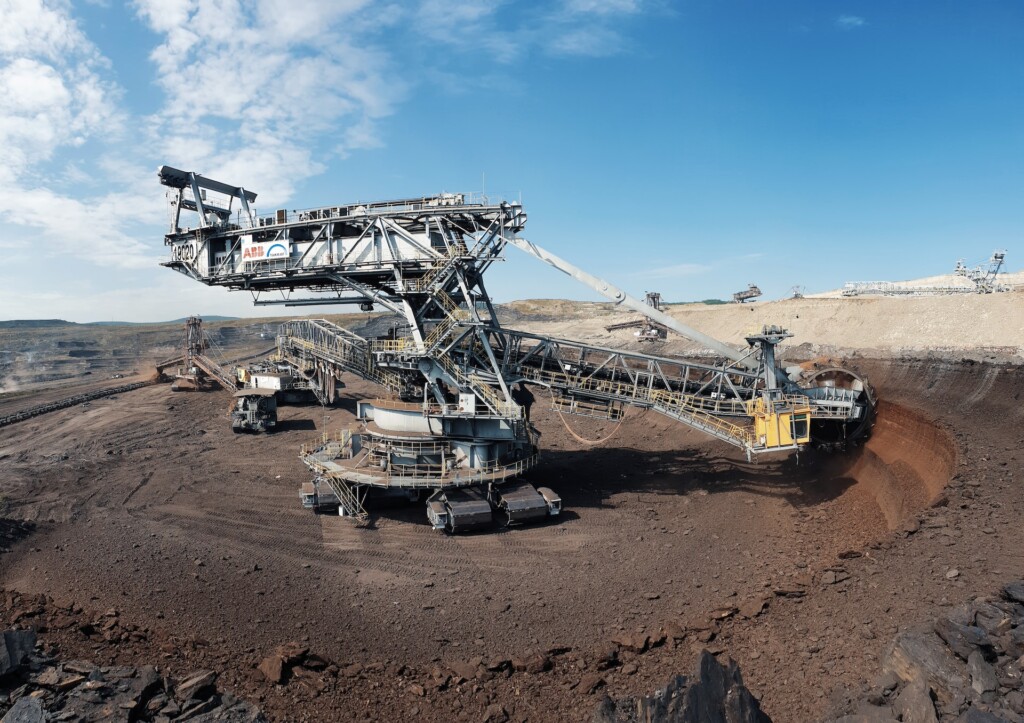

Brazil’s Mining Agency publishes new regulation on the use of mineral rights as collateral
ANM Resolution No. 90/2021 provides greater clarity on the use of mineral rights in financing transactions
Subjects
.jpg) On December 24, 2021, the Brazilian Mining Agency (ANM) published a long-awaited resolution allowing companies to offer mineral rights as collateral in financing transactions. The new regulation is set to take effect as of March 2, 2022.
On December 24, 2021, the Brazilian Mining Agency (ANM) published a long-awaited resolution allowing companies to offer mineral rights as collateral in financing transactions. The new regulation is set to take effect as of March 2, 2022.
Although the creation of security interest on certain mineral rights was already provided for in the legislation (especially in Article 55 of the Brazilian Mining Code), the ANM had yet to clearly define some important points.
With Resolution No. 90/2021, there is now greater detail concerning the process for registering security interest with the ANM, the subsistence of security interest to avoid the relinquishment of mineral rights, obtaining certificates that indicate encumbrance and, above all, the mechanism for foreclosure. These points all provide a greater level of certainty for financing within the mining sector.
However, the new resolution has not expanded the list of mineral rights that qualify as collateral, limiting them to mining concessions and mine manifests (manifestos da mina – an old form of mineral rights deriving from land ownership). As a result, companies holding mineral rights that have yet to reach the mining stage may face greater difficulties in regard to offering their rights as collateral to creditors. In a similar vein, the ANM could have included royalty and streaming agreements as a way of facilitating mining companies’ access to financial resources.
Security interest over mineral rights
ANM Resolution No. 90/2021 establishes that companies can create a security interest over mining concessions via private or public instruments, which must be registered with the agency. For mine manifests, the security interest may only be created via public deeds.
As with other issues concerning mineral rights, the ANM’s Digital Protocol can also be used to create a security interest. In a sign of progress in comparison with previous practices, the security interest must now be registered via an electronic request, either by the mineral right holder or the financial institution.
In line with Article 1424 of the Brazilian Civil Code (governing pledge, antichresis and mortgage agreements), the ANM’s new resolution establishes that mineral rights security agreements must include the estimated or maximum credit value, payment deadlines, interest rates (where applicable) and the identification of the mineral right in question.
However, the resolution has included a further requirement for these agreements, indicating the motive for financing. For example, this may consist of raising funds to expand, regularize or make mining projects operational – or even credit transactions within Brazil’s financial system or structured finance transactions.
Companies and financers should therefore ensure their security agreements fulfill this requirement, in order to avoid possible questioning or difficulties during the security registration process with the ANM.
Confidentiality
In contrast to public records, Resolution No. 90/2021 establishes that mineral rights security agreements are considered confidential. Nevertheless, interested parties may obtain a certificate from the ANM indicating the existence of the security interest; the debt data mentioned in the previous paragraph; the names of the financial institutions involved, the mineral right holder and debtor (if they are distinct entities); as well as the security interest registration (constitution) date and write-off date, if applicable.
Creditor protection
Resolution No. 90/2021 also introduces important creditor protection mechanisms. During the term of a mineral right security interest in effect (i.e. the period between its registration and write-off dates), the associated mineral right cannot be relinquished. Moreover, the creditor’s consent is required to lease the mineral right, whether partially or totally. In certain exceptional cases, creditors may still take procedural steps to avoid the mineral right subject to the security interest from lapsing or being withdrawn.
On the other hand, mineral rights holders remain fully responsible for complying with mining law-related obligations and are subject to sanctions provided for in legislation, including forfeiture. Any acts that may compromise the mining operation and the continuity of mineral exploitation will not be accepted, even if provided for in the agreement.
The resolution will also make it possible for the creditor to access information (upon submitting a request to the ANM) concerning the security of the mining operation, the collection of public revenues, exploration, exploitation and production throughout the term of the security interest. This development will allow the creditor to have more access to information related to the operation, irrespective of the titleholder’s intermediation.
Enforcement and Foreclosure
Resolution No. 90/2021 stipulates that once a security interest has been foreclosed (whether in or out of court), transferring the ownership of the mineral right requires the ANM’s consent, as well as registration with the agency. During this process, the ANM will analyze whether the new permit titleholder meets the requirements for holding a mining concession or a mine manifest. This analysis includes verifying the corporate nature of the new titleholder, and if it has access to the necessary funds or financing for carrying out the provisions of the mine development plan.
While it is explicit about the entities’ requirements to become holders of mineral rights, the new resolution does not explicitly provide for the fiduciary guarantee (cessão fiduciária) of mineral rights, which appears to limit the scope for adjudicating collateral.
Furthermore, an entity that acquires a mineral right subject to a security interest apparently inherits the previous holder’s debts prior to the transfer of ownership. Thus, it may become severally or jointly responsible for these debts, as well as any ongoing administrative proceedings.
Limits on mineral rights that can be used as collateral
Despite the new resolution representing a step forward, it is somewhat disappointing that the ANM missed the opportunity to expand the list of mineral rights, with only mining concessions and mine manifests subject to collateralization. Thus, the AMN has excluded a wide range of mineral rights, such as exploration licenses and rights transitioning from exploration to mining. Often, these rights represent the mining company’s main assets at the moment it seeks financing to help its projects go ahead.
It is alleged that the continued exclusion of other mineral rights stems from an opinion the Brazilian Attorney-General’s Office published in 2009. This opinion was also approved by the Brazilian President at the time, making it binding within Brazil’s federal administration. By limiting the constitution of security interest to mineral rights linked to the exploitation stage, the Attorney-General’s Office applied an excessively literal interpretation of the Brazilian Mining Code’s Article 55. The opinion also took into account certain risks that should be left up to financers to assess – without the Federal Government’s interference.
It had been hoped that after twelve years of criticism from several voices throughout the mining sector (and a push via the ANM and federal bodies), the Attorney-General’s Office might have moved to review its understanding and changed its opinion. Unfortunately, this review failed to take place, representing a missed opportunity to reduce bureaucracy and provide greater stability and legal certainty to projects in the mining sector. Such limitations inevitably lead to higher financial costs for mining companies, and more complex contractual structures.
Resolution No. 90/2021 could have also enabled other registrations with the ANM. Royalty and streaming agreements, for example, have proven to be important instruments for non-conventional financing and are widely used in the mining sector. Even though royalty and streaming agreements do not represent a security interest, the possibility of registering these agreements with the ANM would reduce risks while giving mining companies more opportunities to access financial resources.
For further information, please contact Mattos Filho’s Infrastructure & Energy and Finance practice areas.



